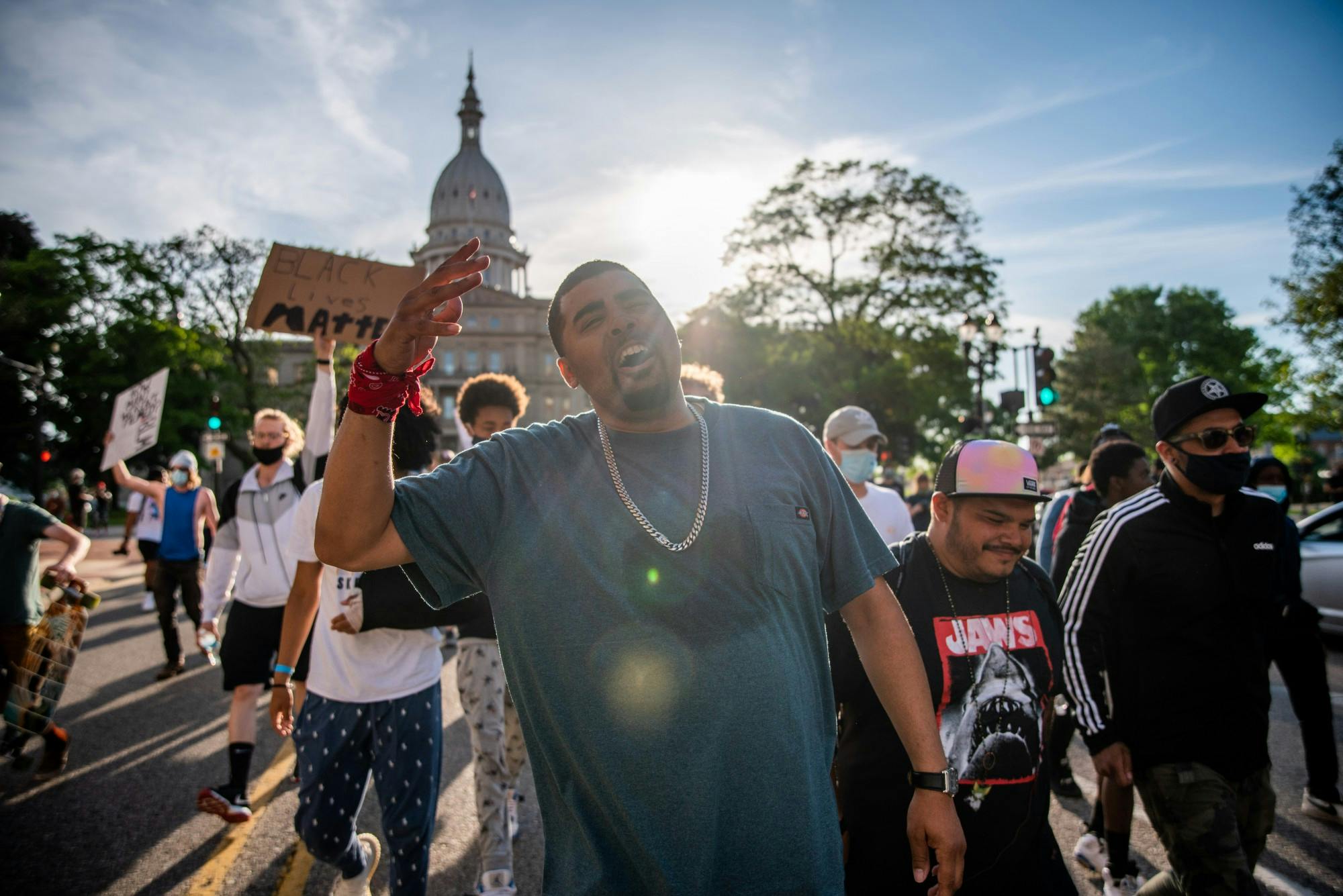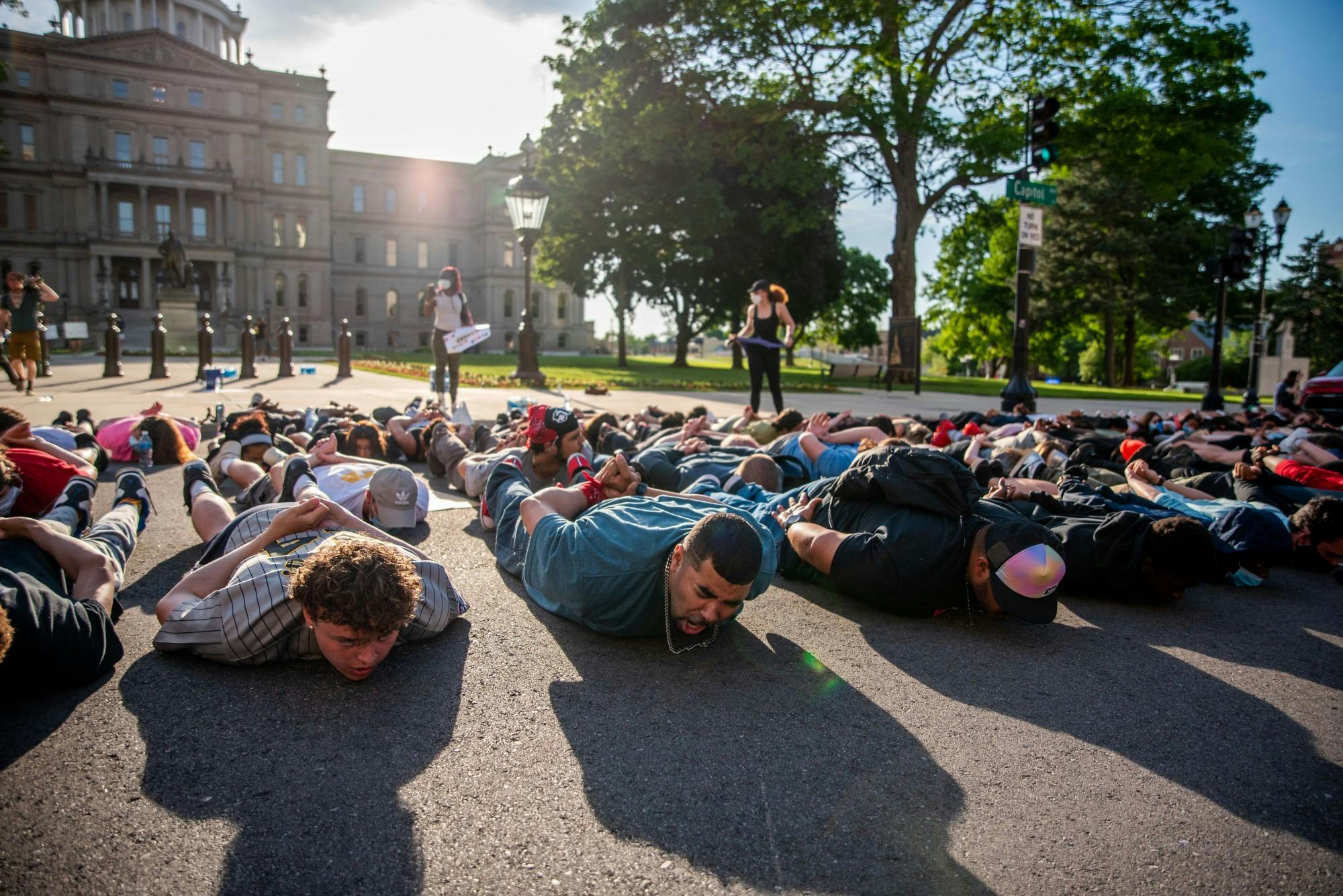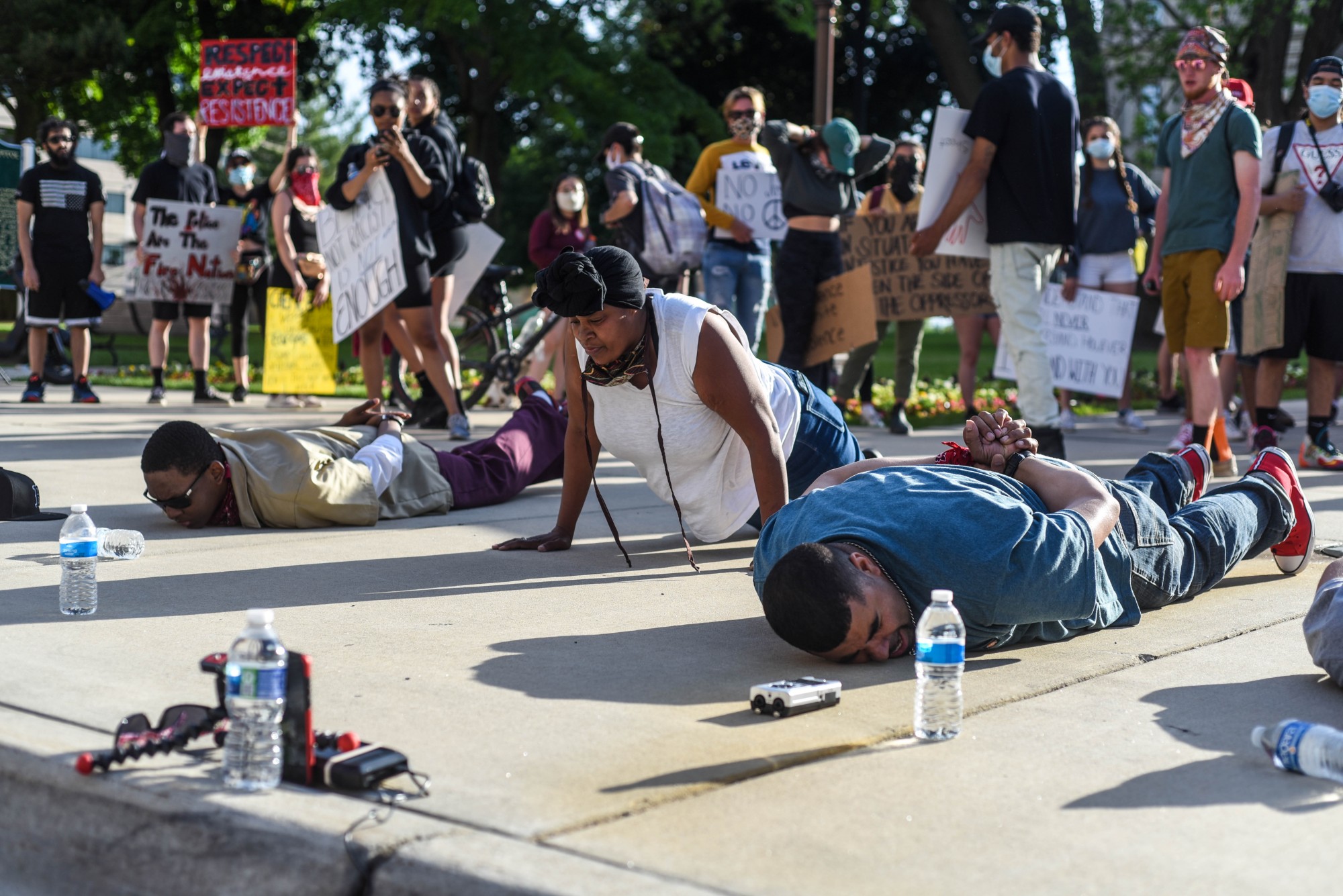Members of the community gathered in Lansing on June 3 to protest against police brutality. The protest — led by Paul Birdsong — began at the Michigan Capitol, followed by a march down Michigan Avenue that found its way back to the Capitol steps.


Protesters lie in the street in front of the Capitol as they chant "I can't breathe" on June 3, 2020.
Members of the community gathered in Lansing on June 3 to protest against police brutality. The protest — led by Paul Birdsong — began at the Michigan Capitol, followed by a march down Michigan Avenue that found its way back to the Capitol steps.

During their march down Michigan Avenue, protesters stopped at each intersection to lie down in the position George Floyd was in when he died. This demonstration was coupled with chants such as "I can't breathe," "loosen my handcuffs please," and "stop killing me."
This protest follows a series of protests in the Greater Lansing area, across the country and around the world demanding police reform following the death of Floyd.
Police presence during the march was minimal. Two Lansing Police Department officers remained in their vehicles at one intersection and security remained disengaged at the capitol steps.
Birdsong said he organized this protest to push for change.
"I'm a gang member and I used to be a gang banger," Birdsong said. "The difference between a member and a banger — a member is just part of it. A banger is somebody that's running around and destroying s--- and hurting other people because they're wearing the other color. The other day, I tied my flag with a rival."
Birdsong said this unity had an effect on him. He said he feels obligated to cause change. He also voiced the need for police to be held to the standards that match their level of authority.
Birdsong said during his speech that breaking things is not the way to cause change. He said this makes a mockery of those who lost their lives to police brutality.
“We’re not going to do that with George Floyd. George Floyd’s death is going to cause change. He’s not just another dead black man. He’s a martyr,” Birdsong said.

Jody Andrades, a Lansing resident, said in attending the recent protests, her voice grew and she wants others to know they can be heard. She described her involvement with the protest on May 31.
"I was quiet, and I was observant, and I was listening and absorbing everything," Andrades said. "And after six hours of marching from the highway to East Lansing, down Michigan Ave, almost getting run over by a woman in her car, to the capitol steps, my voice grew. I want that to happen to other people. I want other people to get out and know that their voice can be heard."
Andrades said she marches for her children. She said they will all be better than we are today.
John Ross and Ricky Diethrich, both Lansing residents, said their families were what motivated them to support and join the protest.
"We all have mixed families. My brother and sister are Mexican and white. I'm all about that mixed culture," Ross said. "So, discriminating against anybody is just obviously not what I believe in."
"My nephew is 10 years old, and he's pretty dark complected. He's mixed, but you can't tell," Diethrich said. "And I'm at the point where I'm feeling I need to tell him how to act around cops and you should never have to do that."
Ross and Diethrich also compared how they were taught about the police when they were younger, despite both growing up together in St. Johns, Michigan.
Support student media! Please consider donating to The State News and help fund the future of journalism.
"As a white male, I have always been taught that the cops are there to protect you and serve you, and you're not going to have any issues with them," Diethrich said. "From what I've seen in the black community, that's a polar opposite."
Ross agreed that he had a polar opposite experience.
Birdsong said he plans to return to the Capitol June 4.